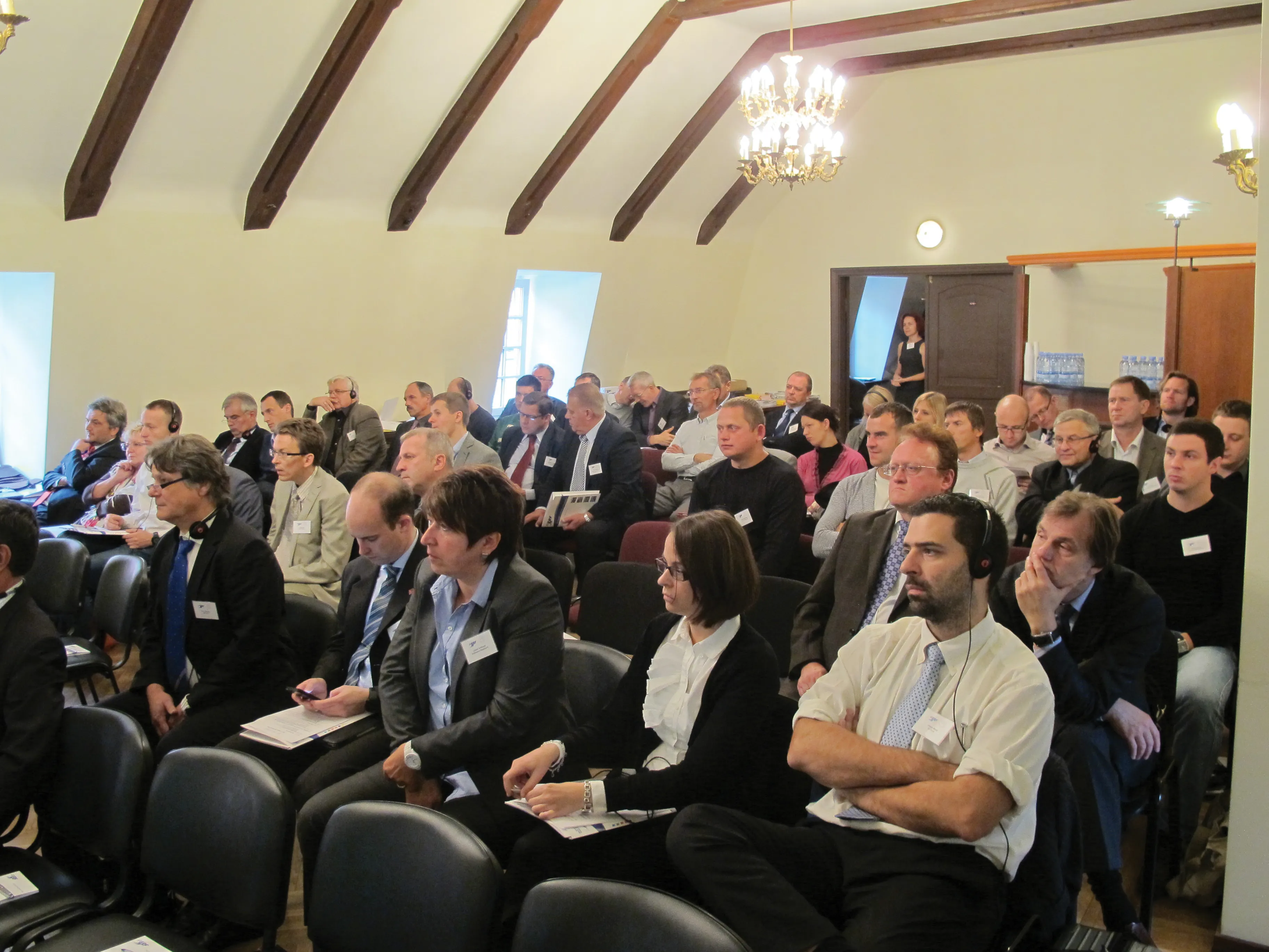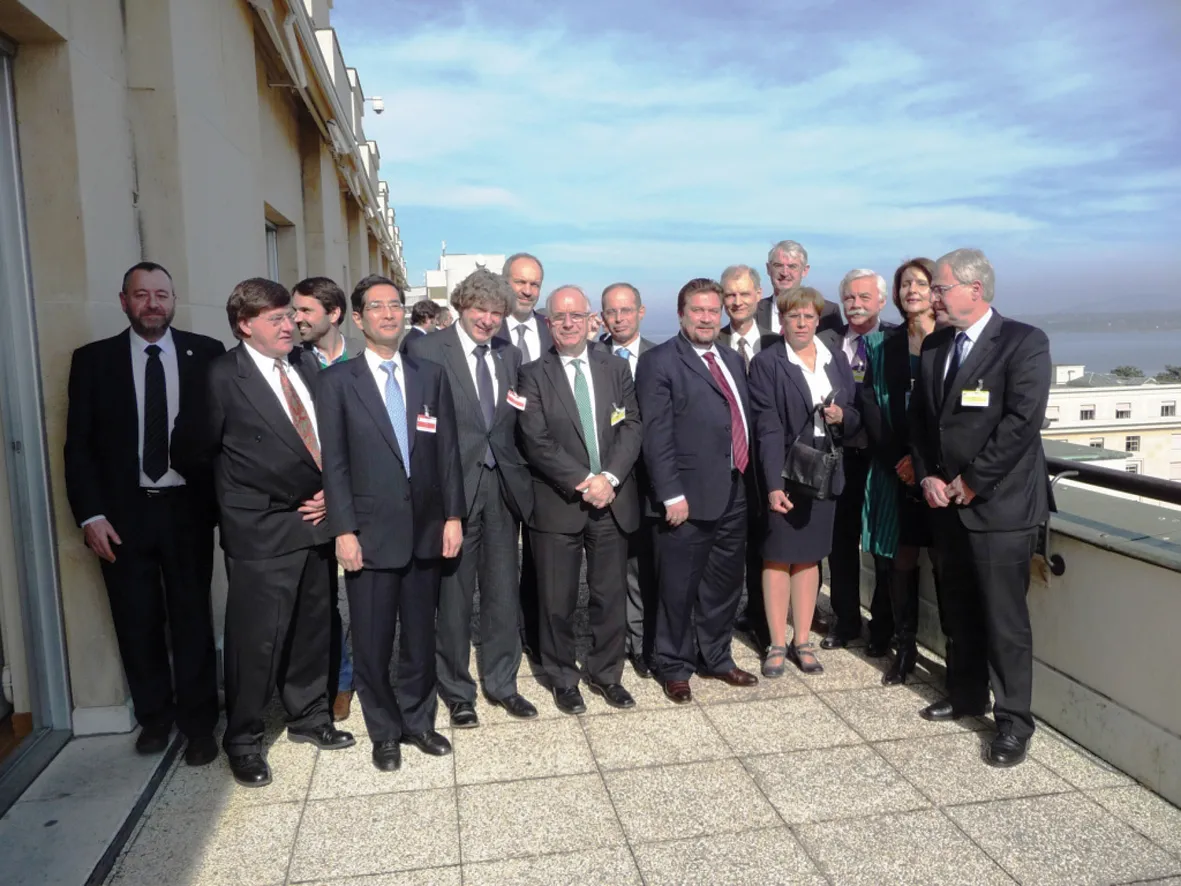In 2001, the European Commission set the ambitious goal of halving the deaths on Europe's roads by 2010. While significant progress has been made over the years, it is clear that only a few countries are expected to reach this target. More needs to be done! The Brussels Programme Centre of the International Road Federation (IRF BPC®), as a signatory to the European Road Safety Charter, has over the years been actively involved in the efforts to improve road safety and reduce fatalities.
July 11, 2012
Read time: 3 mins
RSSIn 2001, the 2465 European Commission set the ambitious goal of halving the deaths on Europe's roads by 2010. While significant progress has been made over the years, it is clear that only a few countries are expected to reach this target. More needs to be done!
The Brussels Programme Centre of the713 International Road Federation (IRF BPC®), as a signatory to the European Road Safety Charter, has over the years been actively involved in the efforts to improve road safety and reduce fatalities.
In this context, it has organised, since 2005, a number of Road Safety Engineering seminars in the Balkans and the Central and Eastern European countries. The latest one, held in Prague on 2 and 3 June, proved a tremendous success. Endorsed by the Czech Presidency and attended by major public and private organisations from the Czech Republic and Slovakia, as well as keynote speakers from across the European Union, the seminar touched upon a number of themes directly linked to better road safety. These included relevant European Standards and Norms, their application in EU Member States, Road Safety Infrastructure, Road Financing etc.
The meeting was separated into five overarching thematic priorities. It started with a dedicated session on Safe Road Management Policies, during which IRF BPC® provided a general overview of the current European Framework and Policy Context. This was followed by presentations by the Czech and Slovak speakers on the road safety situation in their respective countries.
The seminar subsequently examined Legal Requirements in Road Safety - in particular the requirement laid down by the Tunnel Safety Directive & Safe Road Infrastructure Management Directive and its implementation in the Czech Republic - as well as the importance of Road Safety Audits at the inception and subsequent phases of infrastructure projects.
The afternoon session focused on the issue of Passive Safety and notably explained the technical standards of European Norm 1317 and their application in selected European countries. Also covered were more specific issues such as the safety of powered two-wheelers and how to create safe working zones on the roads.
The second day of the seminar commenced with an in-depth examination of Active Safety methods, i.e. concrete steps that can actively influence drivers' behaviour and increase safety. In this context, the role of road marking and signalling was analysed and concrete examples of successful black spot management through better signs were provided.
Last but not least, the seminar held a dedicated session on Road Safety Financing and looked at the potential role that Public-Private Partnerships (PPP) can play in the operation and maintenance of roads.
While efforts to improve Road Safety in the Czech Republic and Slovakia have been stepped up in recent years, the seminar confirmed that there remains significant space for improvement. More generally, the need for more investment in road infrastructure and safety was re-affirmed.
The two-day seminar was concluded by an on-site visit to the Prague Circle Expressway crossing the Vltava River in Lahovice.
The success of the event means that similar initiatives will most likely be undertaken in Croatia and/ or Romania by the end of 2009.
The Brussels Programme Centre of the
In this context, it has organised, since 2005, a number of Road Safety Engineering seminars in the Balkans and the Central and Eastern European countries. The latest one, held in Prague on 2 and 3 June, proved a tremendous success. Endorsed by the Czech Presidency and attended by major public and private organisations from the Czech Republic and Slovakia, as well as keynote speakers from across the European Union, the seminar touched upon a number of themes directly linked to better road safety. These included relevant European Standards and Norms, their application in EU Member States, Road Safety Infrastructure, Road Financing etc.
Objectives
The seminar's general objective was to enable key stakeholders to acquire valuable information on road safety engineering and provide a platform for sharing best practices.The meeting was separated into five overarching thematic priorities. It started with a dedicated session on Safe Road Management Policies, during which IRF BPC® provided a general overview of the current European Framework and Policy Context. This was followed by presentations by the Czech and Slovak speakers on the road safety situation in their respective countries.
The seminar subsequently examined Legal Requirements in Road Safety - in particular the requirement laid down by the Tunnel Safety Directive & Safe Road Infrastructure Management Directive and its implementation in the Czech Republic - as well as the importance of Road Safety Audits at the inception and subsequent phases of infrastructure projects.
The afternoon session focused on the issue of Passive Safety and notably explained the technical standards of European Norm 1317 and their application in selected European countries. Also covered were more specific issues such as the safety of powered two-wheelers and how to create safe working zones on the roads.
The second day of the seminar commenced with an in-depth examination of Active Safety methods, i.e. concrete steps that can actively influence drivers' behaviour and increase safety. In this context, the role of road marking and signalling was analysed and concrete examples of successful black spot management through better signs were provided.
Last but not least, the seminar held a dedicated session on Road Safety Financing and looked at the potential role that Public-Private Partnerships (PPP) can play in the operation and maintenance of roads.
While efforts to improve Road Safety in the Czech Republic and Slovakia have been stepped up in recent years, the seminar confirmed that there remains significant space for improvement. More generally, the need for more investment in road infrastructure and safety was re-affirmed.
The two-day seminar was concluded by an on-site visit to the Prague Circle Expressway crossing the Vltava River in Lahovice.
The success of the event means that similar initiatives will most likely be undertaken in Croatia and/ or Romania by the end of 2009.








